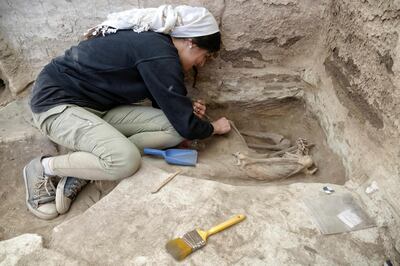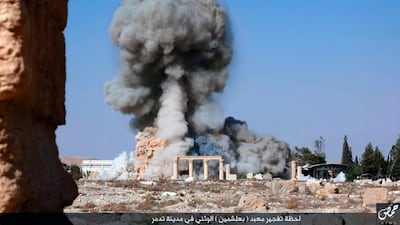Attacks on the world’s cultural heritage have been happening “with a greater intensity than they have for a very long time, perhaps ever,” says James Cuno, CEO of the Getty Trust, the Los Angeles-based cultural foundation. “While the world was responding by wringing its hands, collectively, and expressing outrage, it wasn’t developing a coordinated, multi-layered response.”
The Getty has jumped into the fray by launching a $100 million, ten-year initiative to counter the threats to world heritage. Titled 'Ancient Worlds Now: A Future for the Past', the investment will take the form of advocacy, research into new conservation strategies, training courses, and education to show importance of ancient cultures, as well as their interconnectedness and contemporary relevance.
A number of factors have contributed to the current crisis point, says Cuno: "Climate change, the actions of state and non-state actors, benign neglect, increased tourism – all of these pressures are being put on the fabric of the legacy of the ancient world at this time."

Ancient Worlds Now will partner with a variety of different entities, only some of which have been announced. In 2021, they will work with Abu Dhabi's Department of Culture to host a series of training sessions in Al Ain on the conservation of earthen architecture.
“The topic of earthenware conservation is the primary housing and building type around the world,” says Cuno. The courses will bring together conservators “from Tanzania all the way to China”, as well as those based in the UAE.
Other training courses will take place at the Iraqi Institute for the Conservation of Antiquities and Heritage in Irbil, and the Getty will offer grant support for excavations and digital mapping, for sites such as Çatalhöyük in Turkey, a Neolithic settlement in Anatolia, and the Roman and Byzantine archaeological site of Nea Paphos in Cyprus.
The Middle Eastern region, particularly Syria and Iraq, has been hit hard by recent conflicts and terrorism, and a number of international entities already exist in order combat the threats of destruction, looting and decay – most notably UNESCO and the Aliph fund, set up by Abu Dhabi and France in 2017.
Cuno adds that the Getty are keen not to double efforts being done elsewhere, but to create an atmosphere of coordination commensurate to the threat level.
The Getty is comprised of four institutions – J. Paul Getty Museum, the Getty Research Institute, the Getty Conservation Institute, and the Getty Foundation, all based in California— and the programme will spread across of each of these platforms.


